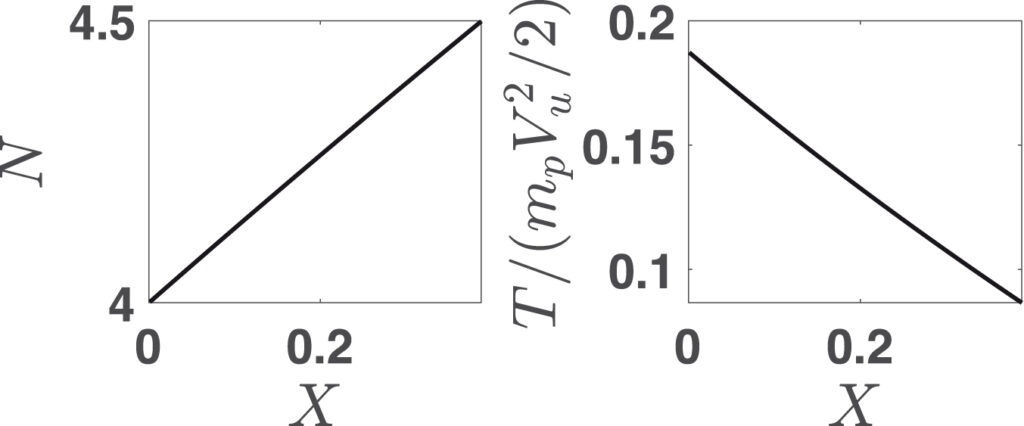In fast collisionless shocks, the density and magnetic field increase and the plasma is heated. The compression and heating are ultimately determined by the Rankine–Hugoniot relations connecting the upstream and downstream parameters. The standard Rankine–Hugoniot relations take into account only mean upstream and downstream parameters. Observations at the Earth’s bow shock show that the downstream magnetic field does not always relax to a uniform state, but large amplitude magnetic oscillations persist. Here, these Rankine–Hugoniot relations are extended to such turbulent shocks where the mean downstream magnetic field is accompanied by magnetic fluctuations. It is shown that the turbulent magnetic field pressure may substantially exceed the pressure of the mean field, while the density compression and heating may be only weakly affected. Thus, strong amplification of the rms magnetic field can be achieved at the expense of a modest reduction of plasma heating.

 . Right: dependence of the normalized downstream ion temperature
. Right: dependence of the normalized downstream ion temperature  on the turbulent magnetic pressure
on the turbulent magnetic pressure  . The range of X in the figure is limited by the condition X < P.
. The range of X in the figure is limited by the condition X < P.Full Article:
Gedalin, M. (SHARP) (2023). Rankine–Hugoniot Relations and Magnetic Field Enhancement in Turbulent Shocks. The Astrophysical Journal, 958, doi: 10.3847/1538-4357/ad0461
License: CC BY 4.0





